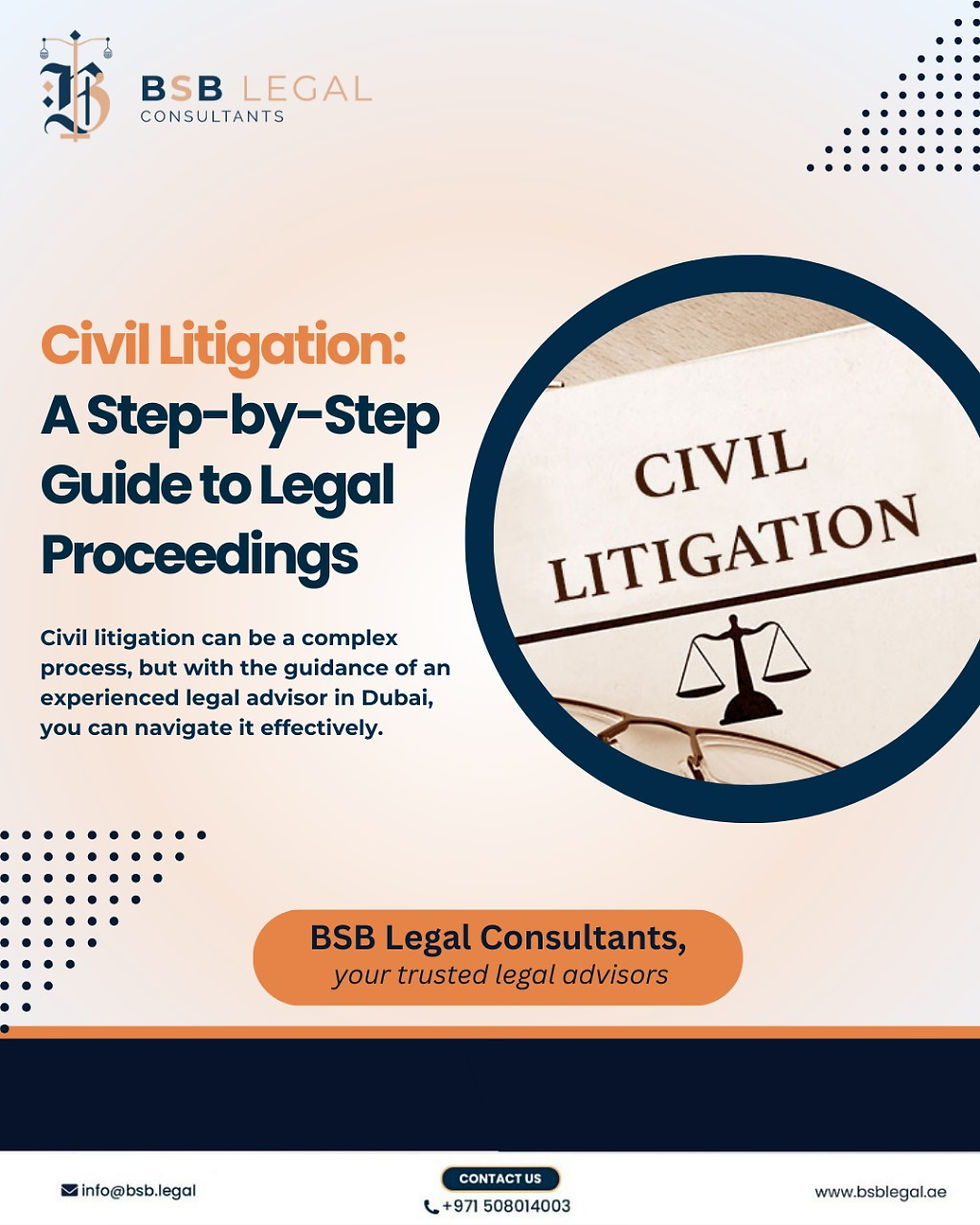Civil Litigation: A Step-by-Step Guide to Legal Proceedings
- BSB Legal Consultants

- Mar 26, 2025
- 2 min read
Civil litigation is the legal process used to resolve disputes between individuals, businesses, or organizations. Whether it involves contract disputes, property issues, or personal injury claims, having a clear understanding of the civil litigation process is essential. If you need legal assistance, consulting a civil lawyer or civil case lawyer can help ensure that your rights are protected. This guide provides a step-by-step overview of civil litigation in Dubai and the role of a legal advisor in Dubai.

Step 1: Understanding Civil Litigation
Civil litigation involves non-criminal disputes that typically seek financial compensation or specific performance rather than criminal penalties. Cases may include contract breaches, property disputes, defamation, or employment disagreements.
Step 2: Hiring a Civil Lawyer
A civil case lawyer plays a crucial role in guiding you through the legal process. They provide legal advice, draft documents, negotiate settlements, and represent you in court if necessary. Engaging a legal advisor in Dubai ensures that you understand your legal options and navigate the legal system effectively.
Step 3: Filing a Civil Case
The litigation process begins with filing a statement of claim at the relevant Dubai court. This document outlines the legal dispute, the parties involved, and the relief sought. The defendant is then served with a court notice and given a specific timeframe to respond.
Step 4: Pre-Trial Procedures
Before the trial, both parties exchange documents, evidence, and witness statements. The court may encourage mediation or settlement discussions to resolve the issue amicably without proceeding to trial.
Step 5: Trial and Court Hearings
If a settlement is not reached, the case proceeds to trial. Both parties present their arguments, evidence, and witness testimonies before a judge. A civil lawyer ensures that your case is effectively presented in court.
Step 6: Judgment and Appeals
After reviewing all evidence, the court delivers a verdict. If either party is dissatisfied with the ruling, they can file an appeal within the legal timeframe, requesting a higher court to reconsider the case.
Step 7: Enforcing the Judgment
If the court rules in your favor, your civil case lawyer can help you enforce the judgment, ensuring that the opposing party complies with the court's decision.
Conclusion
Civil litigation can be a complex process, but with the guidance of an experienced legal advisor in Dubai, you can navigate it effectively. Whether filing a claim or defending yourself in court, legal representation is essential to achieving a favorable outcome.



Comments